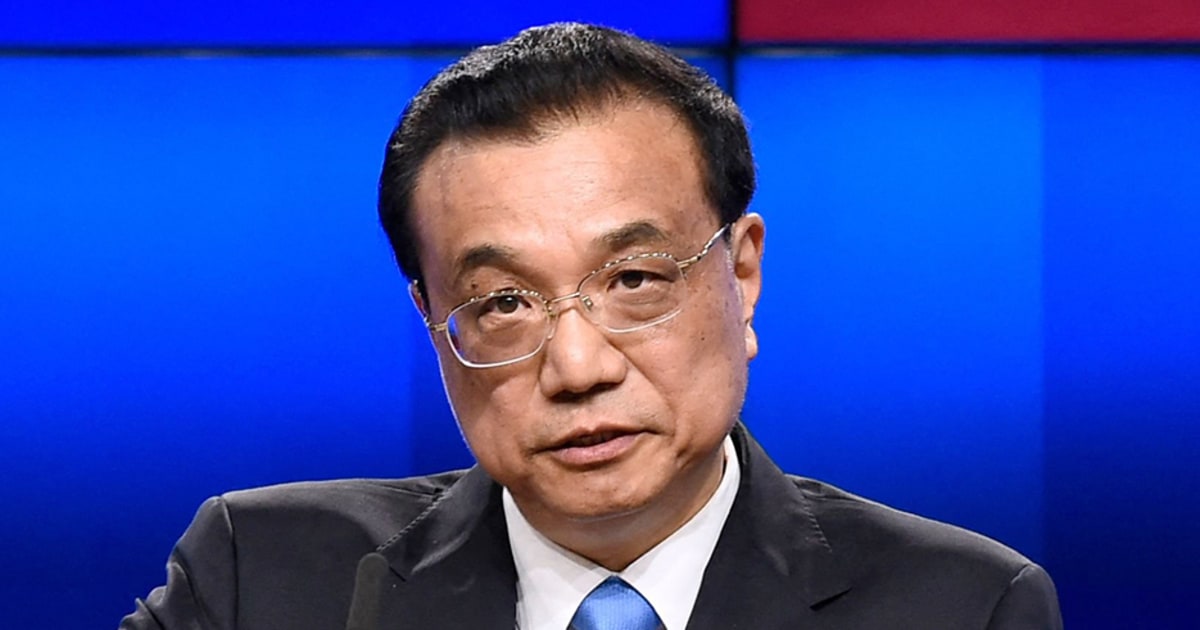
BEIJING — Former Premier Li Keqiang, China’s top economic official for a decade, died Friday of a heart attack. He was 68.
Li was China’s No. 2 leader from 2013-23 and an advocate for private business but was left with little authority after President Xi Jinping made himself the most powerful Chinese leader in decades and tightened control over the economy and society.
CCTV said Li had been resting in Shanghai recently and had a heart attack on Thursday. He died at 12:10 a.m. Friday (12:10 p.m. Thursday ET).
Li, an English-speaking economist, was considered a contender to succeed then-Communist Party leader Hu Jintao in 2013 but was passed over in favor of Xi. Reversing the Hu era’s consensus-oriented leadership, Xi centralized powers in his own hands, leaving Li and others on the party’s ruling seven-member Standing Committee with little influence.
As the top economic official, Li promised to improve conditions for entrepreneurs who generate jobs and wealth. But the ruling party under Xi increased the dominance of state industry and tightened control over tech and other industries. Foreign companies said they felt unwelcome after Xi and other leaders called for economic self-reliance, expanded an anti-spying law and raided offices of consulting firms.
Li was dropped from the Standing Committee at a party congress in October 2022 despite being two years below the informal retirement age of 70.
The same day, Xi awarded himself a third five-year term as party leader, discarding a tradition under which his predecessors stepped down after 10 years. Xi filled the top party ranks with loyalists, ending the era of consensus leadership and possibly making himself leader for life. The No. 2 slot was filled by Li Qiang, the party secretary for Shanghai, who lacked Li Keqiang’s national-level experience and later told reporters that his job was to do whatever Xi decided.
Li Keqiang, a former vice premier, took office in 2013 as the ruling party faced growing warnings that the construction and export booms that had propelled the previous decade’s double-digit growth were running out of steam.
Government advisers argued Beijing had to promote growth based on domestic consumption and service industries. That would require opening more state-dominated industries and forcing state banks to lend more to entrepreneurs.
Xi’s government pursued an anti-graft drive, imprisoning hundreds of officials, but party leaders were ambivalent about the economy. They failed to follow through on a promised list of dozens of market-oriented changes. They increased the dominance of state-owned banks and energy and other companies.
Borrowing by companies, households and local governments increased, pushing up debt that economists warned already was dangerously high.
Li showed his political skills but little zeal for reform as governor and later party secretary of populous Henan province in central China from 1998 to 2004.
Li earned the nickname “Three Fires Li” and a reputation for bad luck after three fatal fires struck Henan while he was there. A Christmas Day blaze at a nightclub in 2000 killed 309 people. Other officials were punished but Li emerged unscathed.
Meanwhile, provincial leaders were trying to suppress information about the spread of AIDS by a blood-buying industry in Henan.
As premier, Li oversaw China’s response to Covid-19, the first cases of which were detected in the central city of Wuhan. Then-unprecedented controls were imposed, shutting down most international travel for three years and access to major cities for weeks at a time.
In one of his last major official acts, Li led a Cabinet meeting that announced Nov. 11, 2022, that anti-virus controls would be relaxed to reduce disruption after the economy shrank 2.6% in the second quarter of the year. Two weeks later, the government announced most travel and business restrictions would end the following month.
Li was born July 1, 1955, in the eastern province of Anhui and by 1976 was ruling party secretary of a commune there.
Studying law at Peking University, he was the campus secretary of the ruling party’s Communist Youth League, an organization that launched the political careers of former party leaders Hu Jintao and Hu Yaobang.
After serving in a series of party posts, Li received his Ph.D. in economics in 1994 from Peking University.
Following Henan, Li served as party secretary for Liaoning province in the northeast as part of a rotation through provincial posts and at ministries in Beijing that was meant to prepare leaders. He joined the party Central Committee in 2007.
Source: | This article originally belongs to Nbcnews.com










